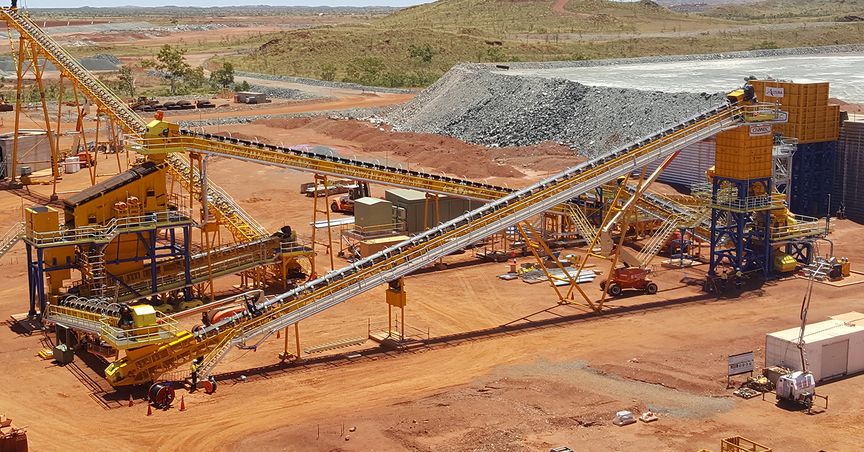Laurence D. Fink aka Larry Fink, who sits at the helm of the largest asset manager in the world – BlackRock, Inc., has been running the company since its inception in 1988. Initially, the asset manager was under the cohort of Blackstone Group and later became an independent company.
In his 2020 letter to CEOs, Mr Fink has voiced his/firm’s opinion on the climate change, the letter titled – A Fundamental Reshaping of Finance, talks about the firm’s stance on the beleaguered global climate risks, leading to the much wider investment risks.
As an asset management company, BlackRock invests in hundreds of companies on behalf of its clients, who trust the asset manager to grow and manage their assets for crucial goals like retirement.
‘Climate Risk Is Investment Risk’ – 2020 Letter to CEOs.
Mr Fink noted that the evolving trend of climate change has become an important consideration in long-term prospects of a business. Climate change would have a significant impact on economic growth and prosperity.
The letter said, the climate change risks had been ignored by the markets broadly. However, the awareness is evolving, and Mr Fink believes that a fundamental reshaping of finance is on the cusp.
Increasingly, the research from notable global organisations have been augmenting the knowledge of climate change risks and its potential ramifications on our world.
Investors are acknowledging the risks posed by climate change and its impact on potential investment which could cause an investment risk. The issue of climate change is being braced by the clients of the group, who are increasingly becoming incisive about the climate risks posed in their portfolio.
And, Mr Fink anticipates significant changes in capital allocations decisions of the investors going forward.

Over the upcoming years, the pace of transition to a low-carbon economy would be defined by the government’s response over the issue, and the collective efforts at an international stage by global governments to better align with Paris Agreement.
However, the transition of energy would take decades, and there is a lack of technology, which could replace the existing energy usage with a source that utilise less hydrocarbons.
The private outfits and governments have to mobilise efforts collectively in a bid for transition, which is fair and at scale to take developing nations with the transition so that they do not lag.
At the same time, investors and companies have to play a crucial part in this transition. In this regard, the group was among the founding members of the Task Force on Climate-related Financial Disclosures (TCFD), a signatory to the UN’s Principles for Responsible Investment, and it was a part of Vatican’s 2019 statement advocating carbon pricing.
Mr Fink believes that a company would not provide decent long-term profit, if it were to ignore basic principles of stakeholder management and purpose. However, the short-term impacts of such actions could be favourable, but in the long-term such actions would damage shareholder value. And by far, the purpose of an organisation remains to drive long-term profitability.
He acknowledges the work undertaken by companies to incorporate sustainability in their reporting structure, and advocates for wider and standardised adoption.
BlackRock, for its portfolio companies, has been demanding for a reporting structure that incorporates TCFD and Sustainability Accounting Standards Board (SASB) reporting. And this year, the asset manager has asked companies to report in conjunction with principles laid in TCFD and SASB.
Also, the group would utilise these disclosures to assess whether the companies are managing risk adequately, and the absence of these disclosures would lead to the conviction that companies are not managing risks properly.

Letter to clients.
In the 2020 letter to clients, BlackRock Group has provided substantial information on its 2020 path.
It said, the clients of the group have been emphasising on the sustainability of their respective portfolios increasingly, and this transition is driven by the growing understanding of the sustainability factors that affect economic growth, asset values, and financial markets.
In 2020, the firms intend to offer sustainable versions of its traditional products, and these products would utilise ESG-optimised index exposure while the firm also anticipates that sustainability-based products would become flagship products overtime.
BlackRock would launch a sustainable version of iShares in a bid to provide investors with a transparent path to add exposure to a sustainable portfolio in a single ETF. Also, the firm is working to develop a low-fee sustainable retirement solution, and to increase its offering in sustainable cash products.
By the end of 2020, the asset manager’s all actively managed portfolio would be complied with ESG, and portfolio managers would be accountable for managing exposure to ESG risks. The Risk and Quantitative Analysis Group (RQA) would be assessing all ESG risks aligned in the portfolio through monthly portfolio reviews.
Presently, the firm’s actively managed USD 1 trillion portfolio does not have exposure to sectors that are vulnerable in terms of ESG. Also, the asset manager is in the process of eradicating thermal coal exposures in its portfolio of companies that generate over 25 per cent revenue from thermal coal.
BlackRock also intends to double the size of ESG ETFs over the next years, taking the ESG ETF tally to 150. It is encouraging global index providers to launch a sustainable version of their flagship indices.
It would be expanding its actively managed strategies emphasised on sustainability as an investment outcome, and this would include funds engaged in the global energy transition.
Currently, the firm is managing around USD 50 billion that promotes the transition to a low-carbon economy, and this includes renewable power and infrastructure business. Recently, the group onboarded an impact investment team, which discovers investments that are making a positive impact on societies.
Disclaimer
This website is a service of Kalkine Media Pty. Ltd. A.C.N. 629 651 672. The website has been prepared for informational purposes only and is not intended to be used as a complete source of information on any particular company. Kalkine Media does not in any way endorse or recommend individuals, products or services that may be discussed on this site. Our publications are NOT a solicitation or recommendation to buy, sell or hold. We are neither licensed nor qualified to provide investment advice.





